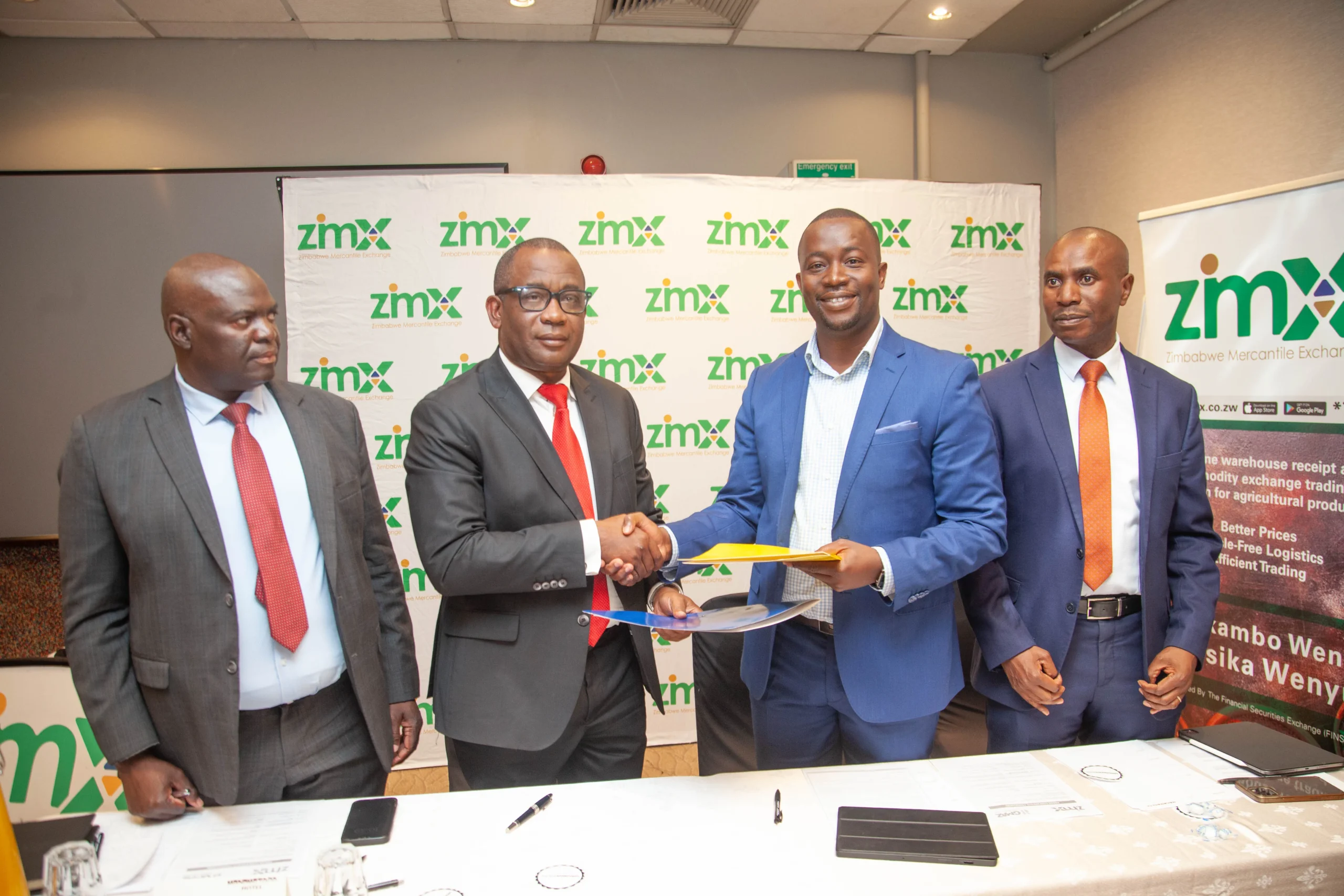The Zimbabwe Mercantile Exchange (ZMX) and the Grain Millers Association of Zimbabwe (GMAZ) have signed a groundbreaking Memorandum of Understanding (MoU) aimed at aligning structured trade systems with the national food value chain Speaking at the signing ceremony yesterday, ZMX CEO Collen Tapfumaneyi described the agreement as a strategic move to integrate grain offtake mechanisms into a market-driven ecosystem, ensuring consistent demand while unlocking pre-sale financing for producers “At its core, this collaboration enables grain offtake through forward contracts, helping to secure demand while unlocking finance for producers It is designed to create a reliable, market-based system that works for both buyers and sellers—millers secure access to grain through binding forward commitments, while farmers and aggregators gain the ability to raise financing before actual sale,” Tapfumaneyi explained
The partnership, he said, is tailored to address one of the most critical challenges in the grain value chain: moving large volumes efficiently while balancing supply needs with cash flow realities on both ends Under the model, maize and wheat will initially be delivered to ZMX-certified warehouses, where they will be converted into Warehouse Receipts (WRs)—a globally recognized financial instrument representing verified, traceable proof of commodity quantity and quality “Millers will sign forward contracts for commodities listed on ZMX These contracts are executed on the exchange and digitally recorded
Each contract has clearly defined delivery windows, pricing, and settlement terms—and they’re backed by physical stock validated through the Warehouse Receipt system,” Tapfumaneyi said Farmers and commodity suppliers holding WRs will have two options: they can wait for millers to take delivery and receive payment upon maturity, or monetize the receipts early through ZMX’s financing options, including Warehouse Receipt Discounting and Pledging “One of the biggest constraints for farmers is delayed payment post-harvest With this model, farmers don’t need to wait until millers are ready to take delivery
They can access working capital immediately,” he noted The arrangement also brings financial relief for millers, who typically face pressure to make large upfront payments to secure grain supply “This model eases that burden Millers can enter into forward contracts without immediate cash outflow while still securing future stock
They take delivery in smaller, manageable tranches—reducing storage pressure and aligning purchases with production cycles,” Tapfumaneyi added He also emphasized the importance of ZMX’s grading and certification system, which ensures that the quality of commodities is assured at the point of delivery GMAZ chairman Tafadzwa Musarara hailed the agreement as a historic milestone that will fully operationalize Zimbabwe’s commodities exchange in line with global best practices “Today we make history by signing an enabling agreement that fully operationalizes our commodities exchange
ZMX, by committing to procure all the maize brought to it, conforms to international standards,” Musarara declared He said the partnership marks a “great departure” from past systems where the government, through the national fiscus, had to shoulder the burden of ensuring grain supply to millers “Our cooperation with the government over the past seven years has created a conducive environment and strengthened our trust From 2019 to date, GMAZ and its contract farming ally FCCA have cumulatively supported over 800,000 hectares of maize and wheat production,” Musarara revealed
Source: Business Times
All Zim News
All Zim News is a central hub for all things Zimbabwean, curating news from across the country so no story is missed Alongside aggregation, our team of nationwide reporters provides real-time, on-the-ground coverage Stay informed and connected — reach us at admin@allzimnews.com.
Source: Businesstimes
